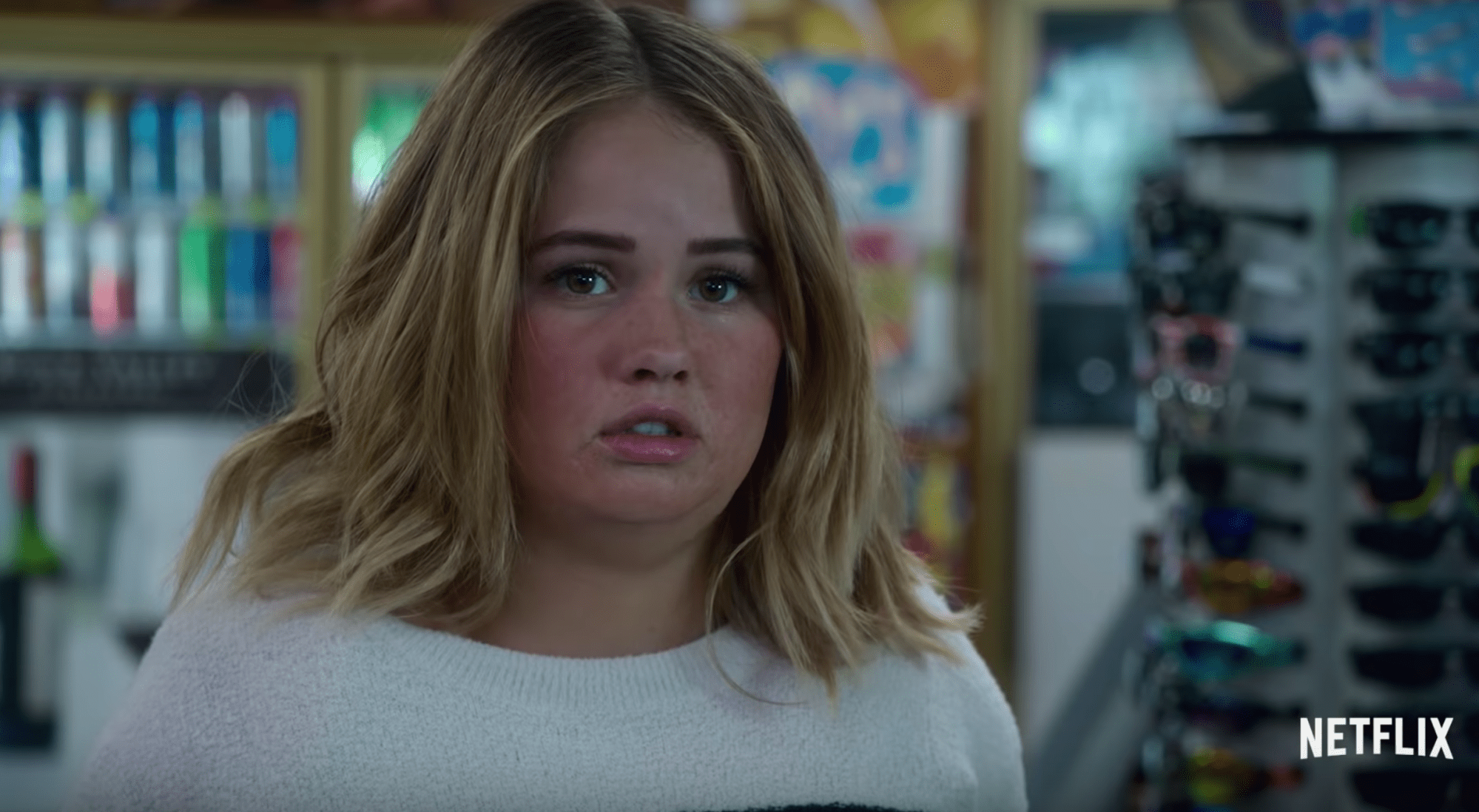We’ve seen it before. Thin actress dons a fat suit, and as if by magic, later in the show she loses weight and becomes the beautiful swan she was always meant be. Her entire existence becomes about how she used to be fat, have low-esteem, and a laughable relationship with food. When those pounds melted away so did her problems.
In the 90s, it was “fat Monica”, who could be found at a party dancing on her own with a pizza slice in each hand. Thin Monica later asks her future husband Chandler “what if I was still fat? You wouldn’t be dating me that’s for sure.” “You guys really think I’m that shallow?” Chandler responds, as if dating a plus-size women elevates him up the moral hierarchy.
Today, it’s Insatiable. The story of a bullied teen, played by Debby Ryan, known to her peers as “Fatty Patty”, whose jaw is wired shut after she’s punched in the face. With her inability to eat for a few months comes her ‘revenge body.’
The premise of the show, due to be released on August 10 on Netflix, appears to be that becoming slim gives her the confidence she needs to get back at her tormentors and — because she was unable to do so before — attract men.
The trailer alone has sparked a petition that has over 150,000 signatures against the show. The founder of the petition, Florence Given, says Insatiable “perpetuates not only the toxicity of diet culture, but the objectification of women’s bodies”.
Creator Lauren Gussis responded to criticism by writing on Twitter that the show is based on her own personal experiences. At the age of 13, Gussis developed an eating disorder, “and the kind of rage that makes you want to do dark things”. But when there are approximately 70 million sufferers of eating disorders worldwide, would it not have been wiser to have a storyline about a fat women who has a healthy relationship with food, people and her body, without becoming thin?
On the matter, Tom Quinn, Director of External Affairs at eating disorder charity Beat, explains that programmes that “promote the idealisation of thinness are likely to cause distress for people suffering from an eating disorder and could be triggering”.
The glorification of thinness is not all that Insatiable promotes. In the trailer, as Patty walks towards the camera, men can be seen staring at her backside in the background. It then cuts to her friend, who is ecstatic. This not only suggests this is what a desirable women looks like, but what a women truly craves is to be ogled by men.
Earlier this year, the Crime Survey for England and Wales (CSEW) showed that more than 510,000 women experienced some type of sexual assault in the past year — women being five times more likely than men to have it happen to them. In a national study on sexual harassment and assault in America, 81% of women said they had experienced sexual harassment or assault in their lives.
In the age of #MeToo, do we need another show that suggests women value themselves by their bodies and men’s perceptions of them? Could we not have a show that opens up conversations about the many other issues that face women today while she lives freely in a sizeable body she loves? And even if Insatiable ends up being about more than an ugly turned pretty plot line, why didn’t the trailer suggest otherwise?
Alyssa Milano, who is a prominent figure in the #MeToo movement and one of the stars of the show, regurgitated her support last week saying, “We are addressing (through comedy) the damage that occurs from fat shaming.”
And, if aired, maybe the show itself may be an enlightening insight into the oppression and harassment women — especially plus-size women — face today. But the trailer doesn’t give us hope. Women face harassment every day and shows should be shedding light on the multifaceted forms of aggression women still experience. In 2017, a report by The United Nation Population Fund found that there is no country where women do not face sexism and discrimination in the workplace. Women earn 23% less than men worldwide.
A report on global LGBT+ issues published by the United Nations this month showed that bisexual women are most at risk of sexual violence, which includes rape, sexual assault, domestic violence and stalking.
Although black and Hispanic women are leading the growth of female-owned businesses in the US, they are less likely to obtain patent rights than white women and men, according to the Institute of Women’s Policy Research. The recent report shows a link between patents and a businesses’ success.
These are only a few of the storylines that could be used to educate viewers about what it means to be a modern women beyond the parameters of what the Insatiable trailer suggests.
There are shows that do highlight the problems of marginalised women, such as Dietland, in which the protagonist isn’t seen as a hopeless fat women, and Grown-ish, where a young African-American struggles to hold onto her identity in her new college environment. There is even Netflix’s trailer for Sierra Burgess Is a Loser, due to be released September 7, in which the central character doesn’t fit mainstream beauty ideals but isn’t someone you’re supposed to feel sorry for because of that. Rather than aiming for revenge, she learns to overcome her insecurities and grow from her experiences — without a pound lost. There’s just no room for shows like Insatiable anymore.
